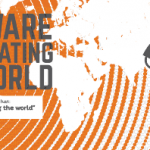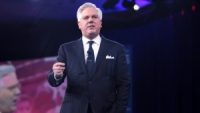Your Job Will Likely Be Eliminated in the Next 5 Years and I Don’t See How to Stop It
April 25, 2016
Obama warns that robots will take over jobs that pay less than $ 20/hour. And retail activists lobby for a $ 15/hour minimum wage. Both will get their way, with the unintended consequence of a slave economy. Halfway to The Matrix or Idiocracy, depending on how cynical you are.

Check to see if your job function is about to get automated, no matter how secure you think you are:
- Analysts who spend more time making reports than actually doing analytics (figuring out WHY)– oAth and free report makers abound.
- Advertising specialists who make campaigns as opposed to building creatives– Facebook and Google have partially automated campaign management.
- Managers who spend more time scheduling or relaying information instead of coaching people– Personal assistant apps are smarter and have no attitude.
- Customer service and call center specialists who speak words from a script instead of creating business logic for automated customer experiences– watch the bot messenger platforms do this flawlessly.
Don’t worry about FoxConn in China, cheap Fender guitars in Mexico or offshore workers who do semi-technical tasks- your competition is the robot. It’s not the Terminator or humanoids from Boston Robotics. It’s AI that lives within systems– not science fiction movies with armies of robots that enslave humans. Jon Bradshaw of TinyTorch has seen this future, and had this to say:
Robots are coming and they will force the majority of the workforce to completely retool and find new skills. The first example of this was in the 1800s when nearly 90% of the world’s population lived on farms. Society was forced to adapt as a positive consequence of the industrial revolution.
With the robotic revolution, the same thing is happening yet again. Within 10-20 years the majority of all truck drivers, taxi drivers, cashiers, accountants, attorneys, government employees, and primary-care physicians will need to find new employment.
And within 40-50, the artificial-intelligence revolution will be in full swing, replacing the vast majority of the workforce. It will be fascinating to see how we the human species will adapt and survive, when so much of our self worth is defined by our employment.
Jobs will be great, if you can get one. We are already facing growing, systematic, irreversible unemployment. The smarter the machines become, the higher the bar becomes for employment. And it’s not just the self-driving cars, supermarket scanners, toll booth takers, and automated ordering systems. The robots are taking over the high-end algorithmic trading on Wall Street and a good chunk of marketing activities. They’re doing a lot more than beating experts at board games.

But before you throw out your smart fridge for being too smart, consider what Jesse Stay thinks about robots and their ability to show emotions:
I think just like Data in Star Trek, getting a robot to experience “feelings” will always be one of the last things humans are able to accomplish. For that reason I still think there are a lot of jobs that won’t entirely be automated for quite some time. In ads for instance, catering an ad to elicit the feelings of a particular audience will not be accomplished nearly as well by a robot as it will a human. I’m not a huge fan of ad automation software for this reason (and I’ve found, at least thus far, that my team can usually outperform these tools)
But the post-secondary education system is not graduating students with modern, employable skills. The for-profit career-focused schools are faring better than four year universities, who have the baggage of meeting the modern expectations of shopping malls, movie theaters, and sporting arenas. But they all struggle.
Were it so simple as to bash the value of a balanced, liberal education or to spread FUD (fear, uncertainty, and doubt) about dystopias ruled by technocrats. The problem is more nuanced. The private sector doesn’t coordinate with schools with minor example, as Derek Bok, former president of Harvard explains in his landmark book.
Regulators mean well through individual rules that “protect” students from predatory lending practices and ensure “gainful employment”. But the unforeseen effect of these rule combinations penalize teachers, students, and businesses. Jesse stay provided some insight here as well:
I do think politics as we know it is about to change. It’s very likely that the President we’re electing now, if still around within the next 8 years, could be leading decisions such as what we do with all the jobs being displaced by robots, and how do we protect mankind as we know it from artificial intelligence.
They’ll need to know how to work with other countries to set rules and boundaries around this. No longer will it be what do we do with all the jobs being outsourced overseas – it will be, “What do we do with all the jobs being displaced by robots?” and “What do we do now that an entire factory can be replaced by a single 3D printer?”
Ultimately, the skills that we must equip young adults with are in the hands of practitioners, not in tenured faculty, hamstrung by curriculum councils that are too slow to change. The risk averse administrators don’t want to jeopardize their federal funding. Continuing education programs, especially in the realm of digital and business don’t have the depth or legitimacy of certifications provided by medical schools or even the local auto mechanic.
The World Economic Forum in “Future of Jobs” said that 65% of kids entering preschool today will work in job types that don’t exist yet.
One my favorite books is “Down and Out in the Magic Kingdom” by Cory Doctorow.

Hilarious, insightfully-scary read about a future that’s not far away, when people won’t need to work. They deal in a currency called Whuffie, automatically calculated and transferred in a karmic way. Technology is perfectly melded with humans. Same for “Snowcrash” by Neal Stephenson, Engines of Creation, and The Singularity.
If we want to solve this pending crisis, I believe we need to read a few choice science fiction books that are more science than fiction to deal with challenges that must be solved at a higher level than those who have created the problems.
Ultimately, we must “outsmart” the machines by building our systems train up and mentor young adults. Robots and AI can play Go and drive cars, but they can’t provide true mentorship and genuine love for one another, any more than a cleverly-programmed animatronic can truly feel.
We weren’t designed to be better calculators, anyway.
Business & Finance Articles on Business 2 Community
(39)














